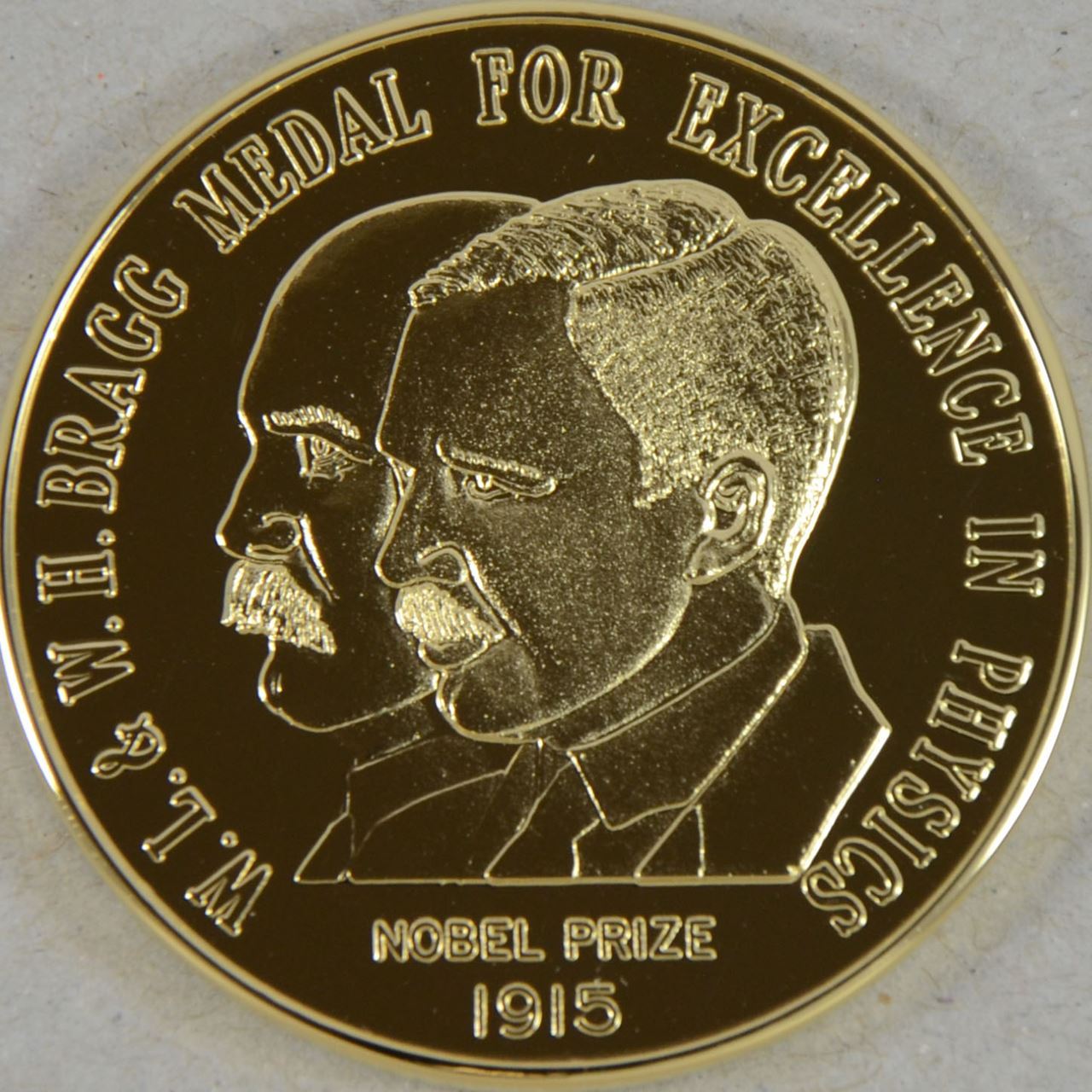THE BRAGG GOLD MEDAL FOR EXCELLENCE IN PHYSICS

The Bragg Gold Medal was established in 1992 as an initiative of the South Australian Branch, to commemorate Sir Laurence Bragg and his father Sir William Bragg, Nobel Laureates.
The medal recognises the most outstanding PhD thesis in physics by a student from an Australian University.
The Award consists of a medal, a certificate, and one year complimentary membership of the AIP. The medal will be presented at the next AIP Congress or AIP Summer Meeting. Reasonable expenses in attending the presentation will be covered by the AIP.
The winner will be invited to present an invited talk related to their thesis research at the next AIP Congress or Summer Meeting and write an article for publication in Australian Physics.
Only one medal can be awarded each selection year.
Eligibility requirements
- The nominee’s PhD degree must have been approved (but not necessarily conferred) in the calendar year prior to the closing date for applications (i.e. approval must have occurred between 1 January and 31 December of the year prior nomination year, inclusive).
- The PhD degree must have been awarded by an Australian university.
- The nominee must not have previously been nominated for the Bragg Gold Medal.
Nomination Material
Completion of the Bragg Gold Medal nomination form*. This nomination form requires the nominee or supervisor to provide contact details and include:
- a one sentence citation capturing the nature of the work;
- the thesis (nominators should note that when attaching a link to the student thesis, this link must be accessible by others outside of their own university);
-
the Examiners’ reports on the thesis, including the marking system/scale. It is strongly recommended that the names and short CV details of the examiners be included (provided the examiners have agreed for their names to be released);
- an endorsement from the Head of the department/school/institute. This may include a statement from the principal supervisor outlining the thesis results and why they are exceptional. The statement should also include details of the specific contributions of the applicant to the research;
- a statement outlining the contribution of the student and their individual research efforts to physics knowledge and development. Of particular interest is the contribution made at the individual level rather than from a research group level.
Nominations close: 1 April each year.
Assessment Criteria
The thesis quality will be judged on:
- research quality and impact;
- assessors reports (taking the experience of the assessors into account);
- publications resulting from the period of PhD candidature, taking quantity and quality into account, for example, by the number of publications and journal impact factors relative to the practice in the research area;
- clarity and quality of communication;
- creative contribution of the student to the research if within a larger research group.
Nomination and Assessment Process
Each university may submit either one nomination, or two nominations if the candidates are of different genders.
The nomination from each university must be submitted to the National AIP (not State Branches) by the closing date above.
Nominations, including all required supporting documentation, should be submitted via the online Bragg Gold Medal nomination form* by the advertised closing date.
*We recommend using an incognito or private browsing window to complete the nomination forms. Being logged in to multiple Google accounts using the same browser creates a known error 'Sorry, unable to open the file at this time.' Please contact us at aip@aip.org.au should you need any assistance.
Nominations will first be assessed by State Branches, who will select 1-3 candidates to be shortlisted. The shortlisted nominations will then be assessed by a national level selection panel.
Each Branch may submit one nomination, or two nominations if the candidates are of different genders. Large branches (VIC, NSW) may submit up to three nominations, provided the candidates are not all of the same gender.
Previous Winners
-
2025 Dr Claudia Reyes, University of New South Wales
2025 Dr Sam Scholten, University of Melbourne
2024 Dr Matthew Berrington, Australian National University
-
2023 Dr Kirill Koshelev, Australian National University
-
2022 Dr Sebastian Wolf, University of Melbourne
-
2021 Dr Timothy Gray, Australian National University
-
2020 Dr Alexander Bray, Australian National University
-
2019 Dr Samuel Gorman, University of New South Wales
- 2018 Dr Yevgeny Stadnik, University of New South Wales
- 2017 Dr Daniel Leykam, Australian National University
- 2016 Dr Phiala Shanahan, University of Adelaide
- 2015 Dr Jarryd Pla, University of New South Wales
- 2014 Dr Andrew Sutton, Australian National University
- 2013 Dr Martin Fuechsle, University of New South Wales
- 2012 Dr Eva Kuhnle, Swinburne University of Technology
- 2011 Dr Adrian D’Alfonso, University of Melbourne
- 2010 Dr Clancy William James, University of Adelaide
- 2009 Dr. Christian Romer Rosberg, Australian National University
- 2008 Dr Frank Ruess, University of New South Wales
- 2006 Dr Alex Argyros, University of Sydney
- 2005 Dr Philip Bartlett, Murdoch University
- 2004 Dr Warwick Bowen, Australian National University
- 2003 Dr Michael Bromley, Charles Darwin University
- 2002 Dr Annette Berriman, Australian National University
- 2001 Dr Nicole Bell, University of Melbourne
- 2000 Dr Mark Oxley, University of Melbourne
- 1999 Dr Ping Koy Lam, Australian National University
- 1998 Dr Tanya Monro, University of Sydney
- 1997 Dr Alexander Buryak, Australian National University
- 1996 Dr Andre Luiten, University of Western Australia
- 1995 Dr Howard Wiseman, University of Queensland
- 1994 Dr Wolodymyr Melnitchouk, University of Adelaide
- 1993 Dr Henry Chapman, University of Melbourne
- 1992 Dr Stephen Bass, University of Adelaide

